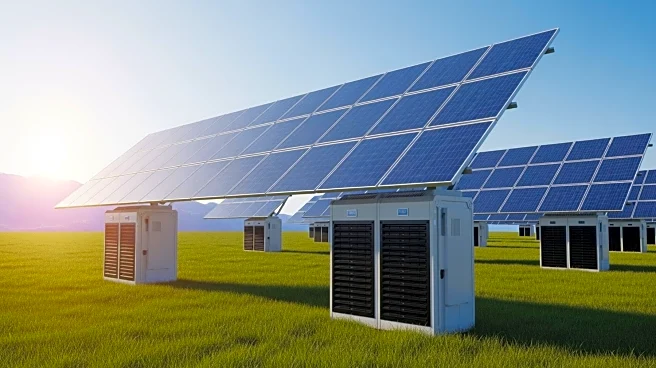What's Happening?
The Energy and Resources Institute (TERI) has conducted an analysis revealing that solar power combined with storage technologies is now more cost-effective than new thermal power plants for providing round-the-clock electricity. The study focused on the seasonal
peak demand day of BSES Rajdhani Power Limited (BRPL) and compared the per-unit cost of solar power with Battery Energy Storage Systems (BESS) and Pumped Storage Plants (PSP) against new thermal power. The findings showed that solar plus BESS costs between ₹3.9 and ₹4.3 per kWh, and solar plus PSP costs between ₹4.4 and ₹4.9 per kWh, which are lower than the ₹5.4 to ₹5.8 per kWh for new thermal power plants. This analysis was part of a presentation at TERI, which included experts from TERI and the National Renewable Energy Laboratory (NREL).
Why It's Important?
The findings underscore a significant shift in the energy landscape, highlighting the economic viability of renewable energy sources over traditional thermal power. This shift is crucial for India's energy policy, as it aligns with the country's goals to increase renewable energy capacity and reduce carbon emissions. The cost reduction in solar tariffs by over 90% in the past decade has made solar power a more attractive option, and expanding affordable storage solutions is seen as the next step towards achieving a 24/7 green power future. This transition could lead to reduced reliance on fossil fuels, lower energy costs for consumers, and a decrease in environmental pollution.
What's Next?
The study suggests that the next steps involve expanding the deployment of solar-plus-storage systems to meet the growing energy demands sustainably. Policymakers and energy companies may focus on scaling up these technologies to replace or supplement existing thermal power plants. The findings could influence future energy policies and investments, encouraging further research and development in storage technologies to enhance efficiency and reduce costs.
















